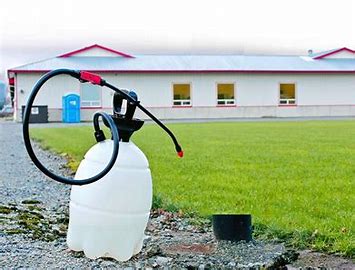NUTRITION IN CATTLE

- Shadreck Mwimanzi
- 14 Aug, 2024
Factors
Affecting Nutrition requirement include the following
Size, age,
breed and stage of production of an animal
Nutrient And
There Function
Water is an
important nutrient needed for all animals it makes up more than one half of the
animals body
-Forms the
basis of the fluids in the body and is essential for process such as digestion
blood circulation and waste elimination
-Helps to
dissolve nutrients and also regulate body temperature through perspiration and
evaporation
-Can be
obtained from feed sources such as forage
-Beef cattle
need about 50 120 liters per head per day
Water Requirements For Cattle
-Dairy water
intake may vary from 10 to 100 liters per day depending on age weight stage of
production and the environment.
-Clean fresh
water free of manure, dirt and other debris is important
The Importance of Forage
Forage,
primarily consisting of grasses, hay, and silage, is the cornerstone of cattle
nutrition. It provides the bulk of the necessary fiber, energy, and nutrients
that cattle require to thrive. Forage is essential for maintaining rumen
health, as it stimulates the chewing activity that produces saliva, which helps
buffer the rumen and aids in digestion. The quality and quantity of forage are
critical; poor-quality forage can lead to inadequate nutrient intake, while
high-quality forage supports optimal growth and milk production.
Supplementary Feeds: Grains and
Concentrates
While forage
forms the base of cattle diets, supplementary feeds such as grains and
concentrates play a crucial role, especially when forage alone does not meet
the energy and protein requirements. Grains like corn, barley, and oats are
energy-dense and help meet the higher energy needs of growing, lactating, or
finishing cattle. Protein supplements, such as soybean meal or canola meal, are
vital for muscle development, milk production, and overall growth. The amount
and type of supplementary feed depend on the cattle's life stage, purpose (beef
or dairy), and the quality of available forage.
The Role of Minerals and Vitamins
Minerals and
vitamins are essential for various bodily functions, including bone
development, immune function, reproduction, and enzyme activity. Common
minerals required by cattle include calcium, phosphorus, magnesium, and trace
minerals like zinc, copper, and selenium. Vitamin A, D, and E are particularly
important in cattle diets. Mineral and vitamin deficiencies can lead to serious
health problems, such as weak bones, poor reproductive performance, and
decreased immunity. These nutrients are often provided through mineral blocks,
licks, or fortified feeds
Fats and
Lipids
Are
essential for various bodily functions. They serve as a dense source of energy,
providing more than twice the energy per gram compared to carbohydrates and
proteins. Fats are vital for the absorption of fat-soluble vitamins (A, D, E,
and K) and play a key role in maintaining healthy cell membranes, insulating
the body, and protecting vital organs. While fats are essential, moderation is
key. Overconsumption, especially of unhealthy fats, can lead to obesity, heart
disease, and other health issues
Factors
Affecting Nutrition requirement include the following
Size, age,
breed and stage of production of an animal
Nutrient And
There Function
Water is an
important nutrient needed for all animals it makes up more than one half of the
animals body
-Forms the
basis of the fluids in the body and is essential for process such as digestion
blood circulation and waste elimination
-Helps to
dissolve nutrients and also regulate body temperature through perspiration and
evaporation
-Can be
obtained from feed sources such as forage
-Beef cattle
need about 50 120 liters per head per day
Water Requirements For Cattle
-Dairy water
intake may vary from 10 to 100 liters per day depending on age weight stage of
production and the environment.
-Clean fresh
water free of manure, dirt and other debris is important
The Importance of Forage
Forage,
primarily consisting of grasses, hay, and silage, is the cornerstone of cattle
nutrition. It provides the bulk of the necessary fiber, energy, and nutrients
that cattle require to thrive. Forage is essential for maintaining rumen
health, as it stimulates the chewing activity that produces saliva, which helps
buffer the rumen and aids in digestion. The quality and quantity of forage are
critical; poor-quality forage can lead to inadequate nutrient intake, while
high-quality forage supports optimal growth and milk production.
Supplementary Feeds: Grains and
Concentrates
While forage
forms the base of cattle diets, supplementary feeds such as grains and
concentrates play a crucial role, especially when forage alone does not meet
the energy and protein requirements. Grains like corn, barley, and oats are
energy-dense and help meet the higher energy needs of growing, lactating, or
finishing cattle. Protein supplements, such as soybean meal or canola meal, are
vital for muscle development, milk production, and overall growth. The amount
and type of supplementary feed depend on the cattle's life stage, purpose (beef
or dairy), and the quality of available forage.
The Role of Minerals and Vitamins
Minerals and
vitamins are essential for various bodily functions, including bone
development, immune function, reproduction, and enzyme activity. Common
minerals required by cattle include calcium, phosphorus, magnesium, and trace
minerals like zinc, copper, and selenium. Vitamin A, D, and E are particularly
important in cattle diets. Mineral and vitamin deficiencies can lead to serious
health problems, such as weak bones, poor reproductive performance, and
decreased immunity. These nutrients are often provided through mineral blocks,
licks, or fortified feeds
Fats and
Lipids
Are
essential for various bodily functions. They serve as a dense source of energy,
providing more than twice the energy per gram compared to carbohydrates and
proteins. Fats are vital for the absorption of fat-soluble vitamins (A, D, E,
and K) and play a key role in maintaining healthy cell membranes, insulating
the body, and protecting vital organs. While fats are essential, moderation is
key. Overconsumption, especially of unhealthy fats, can lead to obesity, heart
disease, and other health issues
Leave a Reply
Your email address will not be published. Required fields are marked *
Moonga Clive
Thank you for insights on goat rearing. Looking forward to seeing more of this.



.jpg)









